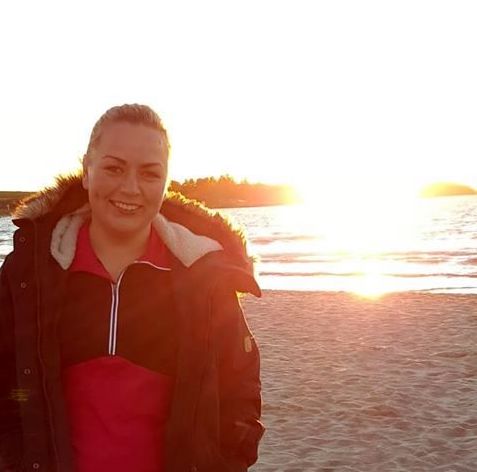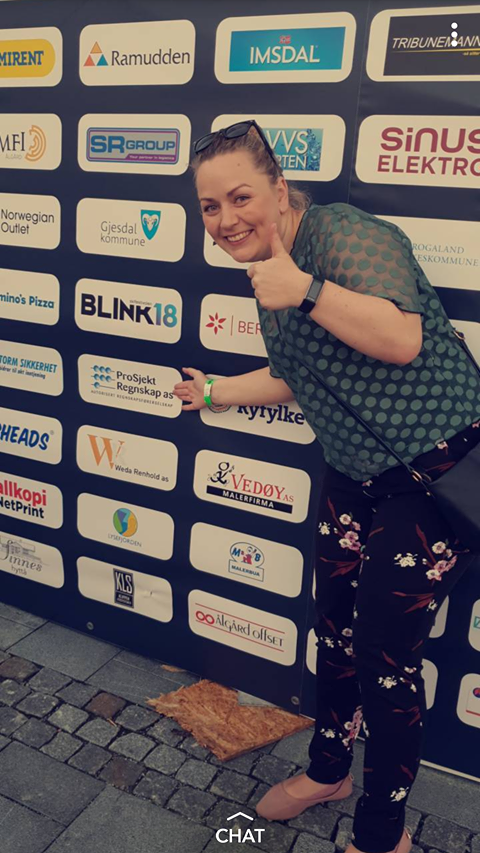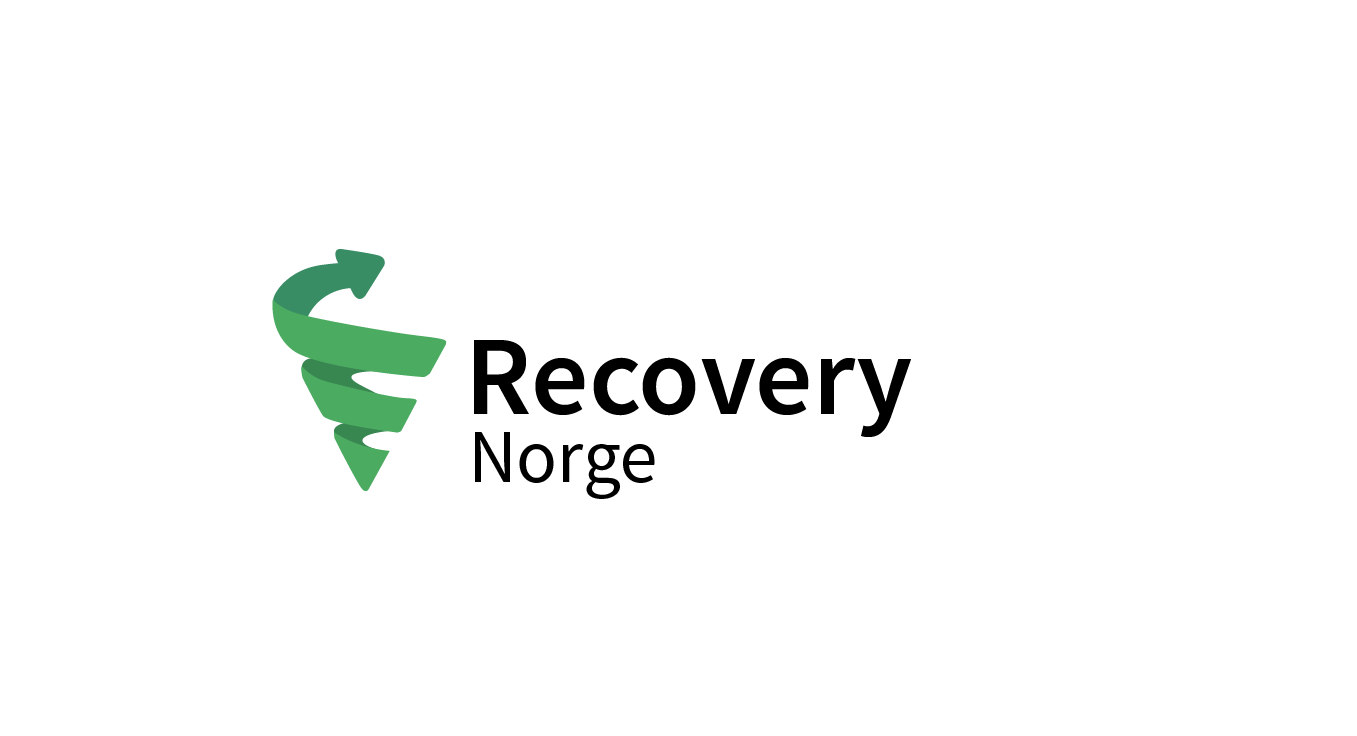Author: Eilen Sør-Reime

June 2014: I spent nearly 12 hours in an emergency ward. They suspected a heart attack since one arm was paralysed, but I did not feel ill, just worn out. They tested me with lots of electrodes and did other tests. After 12 hours I was told that nothing abnormal had been found.
Carrying on like before
After this incident I continued my life as if nothing had happened. I worked out A LOT (I love it) and even went to a fitness camp the following year. I ran around to all kind of activities in addition to studies and several jobs, but after a while I had to give up some activities and one job because it was too much.
In February 2016 I saw a substitute doctor about an infection on my face. I mentioned to her that I had been quite tired for a long time. It was difficult for me to tell her this, because I didn’t want to be considered lazy or be told that there was nothing wrong, since I felt in my bones that something wasn’t right. But she told me that it’s quite normal to feel tired in the spring. She tested me for vitamin D deficiency to be on the safe side, saying it was probably just lack of vitamin D that made me feel ill and tired.
It was difficult for me to tell her this, because I didn’t want to be considered lazy
In October 2016 I had an operation and looked forward to a week’s sick leave to regain my strength – I felt pretty worn out. I slept almost the entire week after the operation, but did not feel any better. Before this operation I had felt tired for a long time, and I often spent the weekend with my parents at our cabin so that I could relax completely. However, I never quite recovered my strength.
After Christmas 2016 I was totally exhausted. I was still working out at this point, since I found it was so rewarding. On New Year’s Eve I was so tired I considered staying home to sleep, but of course I didn’t. It was simply not done for Eilen to stay at home rather than celebrate New Year.
The big crash
The big crash came in January 2017. I switched from workouts and being active to a maximum of two hours’ job every day. The doctor put me on sick leave, but not 100%, so that I could get out for a few hours.
Apart from that, I slept all day and all night. A couple of times during spring my mother helped me tidy up and clean my house, which felt humiliating, even though it was sorely needed.
A shower could use up my energy for the whole day, and I had to lie down again before getting dressed. Combing my hair was a day’s work, and I had to sit while doing it. I had a temperature constantly, and my head felt like cotton wool. The cars outside my bedroom made far too much noise and hurt my ears, and the light in my room was much too bright and hurt my eyes.
I normally slept through the entire weekend unless there was a handball match to watch. Handball gave me some enjoyment for a few hours, even though I spent the entire day getting ready for it.
Something was terribly wrong
There was talk of an ME diagnosis even before my operation in 2016 and several times during that winter and spring, but I didn’t want to know. I get tested for all kinds of things. I was told that one blood test showed Lyme disease, and that I had had mononucleosis. A lumbar puncture was made, but there was no Lyme disease in the nervous system. My head was scanned with MR and tested with electrodes, but nothing wrong was detected. They took masses of blood samples and tested for everything between heaven and earth (internally and externally) in order to exclude everything. Once again I was afraid they thought I was lazy, since they found nothing wrong, but I knew my body. I knew that it liked to be active, that I liked being active. Something had to be wrong. The tests and the uncertainty made me yet more tired. It didn’t help when people, who only wanted the best for me, asked how I was doing and whether I’d had any answers yet.
I was unable to follow a conversation, read or understand what I read
My social life was a complete failure, and I was pleased if I managed to see a few friends one evening a month. I was unable to follow a conversation, read or understand what I read. I could not say all the words I wanted to say when talking to someone. Something was terribly wrong.
In the summer of 2017 I had a fitline/cell-reset treatment to detox my body and absorb more vitamins and minerals, and I had more energy afterwards. When your day consists of working a few hours and then sleeping, there is little energy left for cooking and eating, so I went for the easy solutions. I began working out with a PT to get my body started again. I went to a concert and had a wonderful time, felt really great, but afterwards it felt like I was being punished for it, and my body needed to rest for an abnormally long time.
LP course
I heard about Lightning Process (LP) courses from colleagues and on the net. I registered for a course. I had read and heard a lot of criticism of it on the net, but thought that it was better to try it out than not to try it. I had nothing to lose, I felt. At that point in time, my life could hardly be called a life.
In the summer of 2017 I travel to Oslo with my mother to attend the course. When I saw the LP-practitioner, it was hard to imagine that this lady had been bedridden herself… it gave me hope!
After three days on the course and subsequent work, I went to the cinema for the first time in a long time. It really felt like a victory. Then I went from working 30% to working 60%, and that was another victory. Fortunately, it helped. I could do more workouts, and life was looking up.
In late autumn I also met the most wonderful guy, but let him know early on that he had met an amoeba, and that I needed more rest than “normal” people. Life was smiling to me, but it was also noticeable that my energy now had to be shared with another person.
Stress management clinic
In March 2018 I went to the Fitjar stress management clinic which was led by Bjarte Stubhaug, having waited for a place there since the summer of 2017. There my ME diagnosis was confirmed once and for all after many new tests. I learnt lots of new techniques, and it was a lovely break from my normal routine. We went for walks that were not too hard, learnt stress management techniques and how to relax. It went really well, but I struggled a bit to keep up the new routines once I returned home.
In the spring/summer 2018 I felt rather run down again. And the girl who had started working out again and loved it, couldn’t work out any more. For the most part I did my job and then went home to rest.
We bought a house and spent the rest of the year renovating it. I rested quite a bit and watched other people work.
I have learnt to say no, or at least I am better at it than I used to be
Today, things are quite a bit better. Having moved into our house, I’m sleeping right through the night (that hasn’t happened for years). Life is beginning to take on a routine again. I have learnt to say no, or at least I am better at it than I used to be. I go to bed at a set time, so that my body cooperates. I have – can this really be me? – had a proper 100% job again.

Allowed to be tired
I am not living the way I did in 2013-2015; my body couldn’t take that. I have learnt, and am still learning, that I am allowed to be tired when things have been busy, instead of düing tired. I can rest normally and then continue my life. If activities don’t give me a good feeling, I don’t make them a priority.
Much of what made me ill, that made me “do ill”, was probably the expectation that I would become ill. By “doing ill” I mean that when I expect to be ill and feel the symptoms of illness, I can choose actively not to do ill. The connections in my head find it natural that I should do tired, when in fact I don’t need to or am tired. If I was too active, everyone expected me to get symptoms. And then the symptoms came. And thus it continued in a vicious cycle. Without me actively or consciously doing ill, I would do ill because it was expected – my body expected me to be ill.
If I was too active, everyone expected me to get symptoms. And then the symptoms came
I have heard close friends and others say that they doubted I was ill, because I looked well. No one has observed me inside my own four walls, except for my partner who has seen me when I have been düing tired. No one knew how much it took for me to get outside my door in that period.
There is hope
So if you have a friend who is not feeling too good, take the initiative to keep in touch. The other person might not have the energy to do so, but will appreciate being seen. And when you are together, avoid any talk of illness. Rather, find fun things to do that will take their mind off illness for a while. Don’t ever think that this person chooses not to get in touch – you are not the only one in this situation.

All in all, I have been fortunate to have got as far back to a normal life as I have. I have had to learn a lot of techniques and have had to work hard to get here. I have tried to do some very gentle workouts again, and that gives me a really good feeling. I have many routines that I choose to maintain in order to have a life that I love. A night out on town wrecks me much more than it used to (whether or not there is any alcohol consumed), and I need some extra sleep to get on top of things again.
I hope this might help people understand a little more, that one cannot just pull oneself together. It takes more work than that. And what worked for me, will not necessarily work for the next person. But there is hope.
